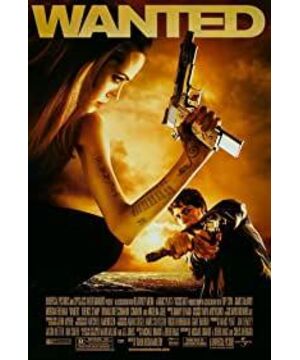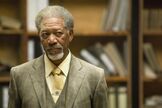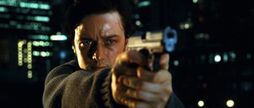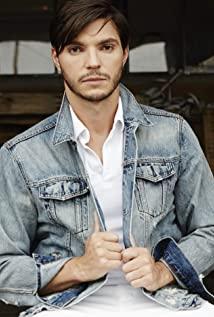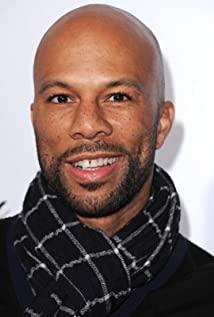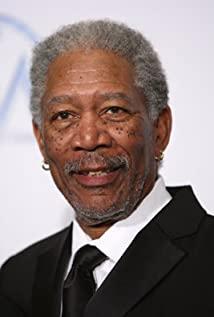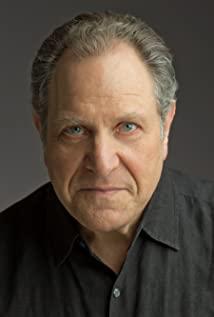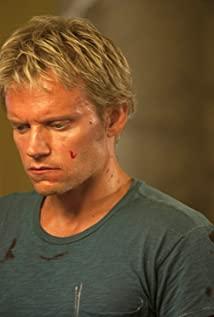Previous: God in the Loom
A few years ago (this article was written in July 2008), a friend of mine who believed in the Lord passed by a church, went in to worship, and came out saying that he heard God speak to him while he was praying. I used to be very interested in trying to convince him that it was just his own psychological suggestion, but after that, I actually started to think about it myself: If there is a God, how would he communicate his will to the world?
This is the technical issue about "leaking the secret".
How to leak the secret method, it should be learned. For example, the technique of "God talking to man" seems to have many shortcomings. First of all, the resolution is too poor, God knows if it is your own psychological cue or if God is really talking to you. Secondly, there is no proof of death. For example, the emperor said that he was asked by God to start a war in a dream. God knows whether it is really God's will or he has ulterior motives. Last but not least, this method seems to be a slap in the face by God. God, he had written a set of physical rules to make the world run automatically. Now, as soon as he manifests himself in front of people, he created this set of his own. The rules of the game have been destroyed, isn't this a slap in the face?
So I think the method of revealing the secret should have a good resolution, be well documented, and try to follow the rules of the world as quietly as possible. Probably the most difficult thing is to try to comply with the established rules of the world. After all, revealing the secret is itself an act that interferes with the normal operation of the world. So where is the breakthrough?
Breakthroughs are random events.
It is said that after Einstein came up with the general theory of relativity, he gradually parted ways with the theoretical physics community with quantum mechanics as the main direction. In Einstein's eyes, the essence of the world should be an extremely precise equation written by God; while in quantum mechanics, the essence of the world is some random events, and God only defines the probability of a certain outcome of random events. size. Here, God's equation is imprecise, the world is the result of God constantly throwing dice, and God only determines the probability of each side of the dice. Specifically, every time the dice is thrown out, God himself does not know which side is up. Einstein therefore instinctively resisted quantum mechanics. Probably in his eyes, God in quantum mechanics is too childish.
If the essence of the world is really a process of throwing dice, then God can take advantage of the loopholes here when he wants to give his will-because when God throws dice, he can make a lot of money! In this way, it seems that everything still conforms to the established rules of the game, and the dice that should be thrown are still thrown. On the surface, it seems calm, but in fact these seemingly random events have been passively manipulated, so that God can stop slapping himself.
Therefore, if God wants to quietly reveal the secret, it is actually equivalent to playing cards at the same gambling table as humans. On the surface, they all have to play according to the rules of the casino. God can't roguely define that the blackjack in his hand is not explosive. The only difference between him and humans is that humans can only play well, while God can. Secretly change cards!
Leaving the microscopic world of quantum mechanics, even if you zoom in to the macroscopic world, there are still countless random events in the world. If the essence of the micro world is a big casino where dice are thrown, the macro world is still a big casino. There are all kinds of random events all around us, how can you be sure that they are really random? They may just appear to be random. Once you analyze them, you may be able to decipher the "heavenly secret" that God, the number one gambling god of heaven, is hiding inside.
Don't think the idea of God hiding in random events is absurd, maybe you've already thought about it, but you just didn't realize it. You may not be a follower of any religion, but you may more or less believe in God in random events.
Friends who play mahjong have experience. When your hand is smooth, you feel that mahjong loves you very much. You can do whatever you want. When your hand is bad, you don't want to come. Even Hu Shi said: "There are ghosts in mahjong". At this time, you don't believe that the placement of the cards is random. Something must have "manipulated" the position of the mahjong when shuffling the cards, making them just look random.
There is a 50% chance that a coin will land heads and tails when thrown. But if you lose 4 times in a row and all come up heads in a row, what do you think is the probability of getting heads up the 5th time? If your answer is less than 50%, then congratulations, you have unknowingly joined the ranks of theists. Because you think that the coin itself knows that it has landed up several times in a row, so it must "balance" it with a higher probability of being tails up this time. In the same way, friends who play lottery have to look for patterns in the previous winning numbers, and feel that the next colored ball will adjust the probability of their appearance according to the probability of their appearance in the previous few times. At this time, you actually not only believe that coins and colored balls have spirits, but also believe that they are mathematicians who understand probability.
The most popular divination methods in the world actually use random events to predict fate (gossip, tarot, hand tattoos, tea leaves fortune-telling). The logic of these divination methods is to believe that random events are not random, but hidden arrangements of God. For example, using tea residues to tell fortunes, the pattern formed by the tea residues in the cup is actually just a random event, but in the eyes of the prophets, this is actually the result of God's old thousand. Recalling Wang Jing's "Sparrow Saint" series, which uses the method of falling in love with mahjong to turn cards, this is simply the highest level of gambling, because it is directly close to the world's largest old thousand sets.
Therefore, God's use of random events to convey his will is not only a technically perfect means, but in fact it has long been the consensus of everyone.
In Wanted, God uses this method to communicate his will.
There are a lot of interesting settings in "Wanted Order", such as the bullet trajectory that can be controlled, such as the marksmanship that God can use bullets to hit, such as SPA healing Dafa, but my favorite is the film's treatment of God set up.
In "Wanted", God is a loom! Rather, God communicated his will through a loom. What's going on here? The process of weaving on a loom is actually a process in which a shuttle drives a horizontal thread through many longitudinal threads at high speed. It is a random event whether the shuttle passes above or below the longitudinal thread at high speed. The resulting overlap of transverse and longitudinal threads is a random result. Some horizontal lines are on top, and some vertical lines are on top. If the horizontal lines are recorded as 0 on the top and the vertical lines are recorded as 1 on the top, then they can be arranged into a 0, 1 code. And God's message to mankind is actually hidden in such a code.
"Wanted" is actually a story about whether a person who has received God's will must strictly obey it. And God's will actually came from a loom. Probably a lot of people think this setting is a bit nonsense, and I like this setting very much. I've talked a lot of nonsense before, but I just want to explain that this setting is actually not nonsense. It is not only very interesting, but also very "scientific". If the people in "Wanted" were like Nicolas Cage in "City of Angels" standing by the sea and listening to God's voice, that would be bullshit.
Next article: The splendid sky sniper
A good movie doesn't have to be all-encompassing. I prefer works that may have flaws in some aspects but are perfect in some aspects. The ultimate in anything is king. "Wanted" is such a film that plays very well in some aspects.
"Wanted" is a movie that plays with guns. In this regard, "Wanted" has a lot of fun, and it is like playing romantic gunfights to the pinnacle. Timur Bekmambetov, the Russian director, has a very strange imagination for the picture. If you have seen his "Sun Watcher", you will not forget the scene of Timur's war horse penetrating the city wall and the sports car flicking on the wall of the building, right? Generally speaking, foreign directors tend to hold back when they first arrive in Hollywood, but I didn't expect this guy to have no stage fright at all. This time he played very arrogantly. The gorgeous headshots of Angelina Jolie and James McAvoy in the film are simply superb gun skills.
When I was a kid, I loved watching gunfight movies, and most of the shootout scenes in Hollywood and Hong Kong movies now look all ultra-romantic. The so-called "a hero can't be killed alone" means that all kinds of objects around the hero are shot to pieces by bullets, and sparks are scattered. The hero himself has nothing to do. In addition, in the romantic gunfights at that time, it was taken for granted that the hero did not need to change bullets, and it was even possible to be romantic enough that no bullet casings fell out of the gun magazine after shooting. How could such an embarrassing tradition of gunfights develop to the present-day appearance? We looked at it from the back to the front.
At the beginning of "Wanted Order", it played a very gorgeous ultra-long-distance curve headshot sniper. This sniper can be said to be a "sky sniper", and sniper has such a romantic way of playing. In stark contrast to it, there was a film called "shooter" last year. The film as a whole is not outstanding, but the introduction of sniper technology in the film shows the most realistic side of sniping. The performance of sniper technology in the film finally faces up to the problem that the ballistic trajectory is not a straight line at long distances - after a certain distance, the bullet will actually float up first, and then fall. So in fact, when you really do long-distance sniping in reality, the sight of the scope is not directly facing the target. The sniper must mentally calculate the distance of the ballistic deviation according to the distance between himself and the target, the wind speed at that time and other conditions. In fact, sniping is not simply a technique at hand, and it may require higher brain power. Before "Life and Death Sniping", almost all the subjective shots of sniping in film and television works were aimed at the target. This is probably not because the directors do not understand the knowledge of sniping, but because they are afraid that the general audience will not understand it. Instead of trying to explain it, it's better to just shoot it "looks right".
Before appreciating the spy of "Wanted Order", the first spy in my mind has always been the city hunter Han Yuliang. When I was a child, I always had a question, which is better between the snipers in the special forces, the top masters who are good at using sniping in the killers, and the champions of similar firearms in the Olympic Games? I think the Olympic champion can't be compared with the previous two in terms of overall quality. In actual combat, he will definitely be killed in seconds. But what about pure marksmanship? I still don't have an answer. The answer in "City Hunter" is that, purely on marksmanship, the Olympic champion is still no match for the pros. Han Yuliang said that the Olympic champion is the world number one at the amateur level, and he is the world number one at the professional level. So in the story about sniping in "City Hunter", Han Yuliang can continuously hit the opponent's gun barrel several kilometers away, and can also shoot the opponent's belt buckle. The amateur is vulnerable in the face of the profession.
If sniping is the pinnacle of God's accuracy, the AK47 in the hands of the bandits is the pinnacle of inaccuracy. What impressed me the most in this regard was Black Hawk Down, where the performance of the shootout really surprised me, because it turns out that shootouts can be very inaccurate. Several similar realistic works before "Black Hawk Down" have focused on the terrifying consequences of being hit by a gun, but the message conveyed in "Black Hawk Down" is: if you get hit, it is true It's that bad, but sometimes it's not easy to get hit, especially when the opponent is a bandit with an AK47 with extremely erratic ballistics and no scope. There is a passage in the film that describes the US military's concern that it is a peacekeeping force and cannot take the initiative to attack. It must confirm that it is attacked before it has the right to defend itself. And the way to confirm that he was attacked was to "hear the sound of bullets flying by your ear"! What struck me was that the American soldier who said this didn't look very nervous, as if there wasn't much danger of a bullet hitting him before "hearing the sound of a bullet in his ear". There is also a scene in the film when the U.S. military followed behind the armored vehicle and retreated desperately. There were still some mobs behind them shooting fire, but no U.S. military was shot and fell to the ground, and no one panicked to escape. These seemingly unreasonable pictures are just another kind of realism that is very rare in my opinion. The shootout in "Black Hawk Down" is actually a professional versus an amateur. Although the Somali mob had an advantage in firepower, this advantage was offset by a huge difference in hit rate. Only then can this battle be fought. Only in this way, sometimes the US military can still maintain unexpected composure in the face of the AK47 strafing close at hand.
The realistic gunfight of Black Hawk Down only became popular after Spielberg's "Saving Private Ryan" created a new look for realistic gunfights. Spielberg himself has been enjoying it since "Saving Private Ryan". Even in a futuristic sci-fi theme such as "Minority Report", he is also implementing the concept of realism, and all kinds of action scenes in it are intentional. Very clumsy handling. Later, in the work of "Munich", Spielberg pushed this extreme realism to the extreme, so that I estimate that the audience may not remember the shooting scene in "Munich" at all afterwards. Because most of the time, the great thing about a shootout in a movie is that it's romantically exaggerated, whereas a real shootout is pretty boring. The firearms used in war themes such as "Black Hawk Down" and "Saving Private Ryan" are very powerful, and their destructive power brings extremely bloody killing scenes that are more shocking without romantic decoration. And if the street melee, which is much lighter in firepower, is still expressed in this extreme realism, it will not be "exciting" at all. That's exactly what "Munich" is. The shot doesn't even light up, and it doesn't look like a difference between being shot and tripping. Spielberg took the realist shootout to unprecedented heights, but did he himself later become a little obsessed along the way?
In short, in realism, if you see someone shooting at you on the opposite side, you have to hide. If you can avoid it, you are lucky or the opponent's marksmanship is too bad. Not so with romanticism. In "Wanted Order", in addition to "hiding", you can actually "block". The elite sharpshooters can control the ballistic trajectory accurately enough to use a bullet to hit another bullet in flight. This is very similar to the palms of the masters in martial arts novels. Recklessly. This can be done, of course, because the sharpshooters in "Wanted" are psychic, and when they use their superpowers, they can improve their movements and reflexes to a degree of extreme precision and speed.
In "City Hunter", Han Yuliang, the world's number one sniper, is also a top pistol player, and he can also intercept bullets with bullets. However, that is obviously unsustainable in romantic works such as "City Hunter", because only superpowers who can enter "bullet time" can do it. Neo, whose speed is at the level of bullets, can only use an extremely gorgeous back to avoid bullets, not to mention Han Yuliang?
The same is to avoid bullets, Neo's gorgeous back is far behind the "gun fist" in terms of technical level. Gun kata (Gun kata) is a fun combination of kung fu and gunfight invented by American director Kurt Wimmer. You must have seen it in his "Tear Doomsday" and "Deadly Violet". Gun Fist Do is actually a kind of bullet avoidance, and its essence is to find a way to keep the opponent's gun from pointing at you. When used at a distance, it is equivalent to the kung fu of "Lingbo Weibu" in martial arts novels. It is a "movement technique", which avoids the opponent's ballistics by changing the body posture and position; when used at close range, it is The "method" is gone, and the gun in the opponent's hand is pushed aside so that the opponent can't shoot himself. In fact, if the opponent's marksmanship is good enough, the punching gun is basically meaningless in a long-distance duel. Just like the long-distance duel in CS, if you keep jumping, if the opponent is a rookie, it may be harder to hit you because you move around, but if the opponent is a master, it will still effortlessly put you in the half. Empty headshot. After all, you'd have to wriggle as hard as you can to avoid the ballistics, and the opposing gunner just needs to fine-tune the muzzle orientation.
I have to say that although Kurt Wimmer made things like gunfighting a little embarrassing, the concept is really fun.
When it comes to the combination of gunfights and kung fu, probably no one realizes that Star Wars is an early attempt. Aren't the Jedi Knights just using cold weapons against hot weapons? But the movements of the Jedi Knights seem to be as slow as normal people, and their level simply can't predict and block bullets. If this level was put into a general shootout film, it would have been beaten into a hornet's nest. The reason they got along so well in Star Wars was because the "bullets" of the laser guns were traveling so slowly that they could be seen with the naked eye. So it's not that Jedi is powerful, but the alien's hot weapon technology is too bad. So if cold weapons really want to fight against hot weapons, people who use cold weapons still have to be superpowers. For example, "Final Fantasy 7: The Arrival of the Holy Child" shows the confrontation between cold and hot weapons in the hands of superpowers. Incisively and vividly. "Wanted" also has a butcher who can block bullets with a knife. Under the superpower setting in the film, his movements can be fast enough to keep up with bullets.
Back to gunfighting. In fact, Tsui Hark and Xiong Xinxin have already played the concept of Gun Fist Dao in "Downstream and Countercurrent", but because those few scenes were too short, they were not as arrogant as Kurt Wimmer played later, so it didn't cause much repercussions. I think Xiong Xinxin's talent as a martial artist has always been seriously underestimated. The vigor of the action in "Downstream and Countercurrent" is all attributed to Tsui Hark's use of the camera, and the credit for "Seven Swords" is somehow attributed to Liu Jialiang.
A duel designed by Xiong Xinxin for "Downstream and Countercurrent" is very similar to the hand-to-hand combat in Gun Fist Dao later. In fact, this paragraph is many times sharper than Kurt Wimmer's flower fist embroidered legs (the software I used to cut the video has some problems, there is no picture in the first few seconds):
Gun Fist Dao in "Countercurrent"
The whole movie of "Counter Current" is very enjoyable when it comes to playing with guns. In addition to the predecessor of the gun boxing above, what impressed me the most was the following scene:
"Downstream and Countercurrent" double guns pointing at each other
I thought at the time that Tsui Hark must be satirizing John Woo when he thought of shooting this scene, right? This picture of two people pointing guns at each other is simply Woo's signature. In John Woo's films, two people often point at each other with guns, and then they will not shoot for a long time. After they have nothing to say, the two must shoot at the same time as if they had made an appointment, and the result must be two people. Individuals can't even die.
When I was a child, I thought, how could such a scene happen? Both of them pointed guns at each other, as long as they pulled the trigger first, the other party would hang up. When face-to-face, it's hard for the other person to see if your finger is pulling the trigger, so just pull the trigger, and by the time he reacts, he's in heaven. Moreover, in the case of fighting to the death, how could it be possible to point a gun at the opponent without firing?
It's no wonder that some Western audiences think John Woo's movie is a gay movie. This kind of scene where you can't die with guns pointing at each other is clearly two people flirting.
So when I saw the scene of "Double Guns Pointing at Each Other" in "Downstream and Countercurrent", I almost jumped with excitement. This is the scene that should appear when the two guns are pointing at each other!
"We're tied now."
"Tie? Idiot! Guns are for killing people, not for talking!"
This passage is clearly what Tsui Hark said to John Woo.
Thinking of the grievances and grievances between Tsui Hark and John Woo, this episode in "Downstream and Against the Current" is even more interesting. The original gun-playing classic "The True Color of Heroes" was created by Tsui Hark and John Woo together, and all the credit goes to John Woo. Then Tsui Hark became ruthless and pulled John Woo like a puppet to get "The True Color of Heroes 2", but it made both of them disgraced, and he didn't gain anything. By the time Tsui Hark was filming "Downstream and Countercurrent", John Woo had already filmed "Face Change" in Hollywood, transformed himself into a major Hollywood director with the right to operate first-line productions, while Tsui Hark's own two Hollywood movies were even written in coffins. All lost. When he remade a shootout film after parting ways with Woo Yusen for many years, Tsui Hark would definitely think of Woo Yusen at that time, and he must have wanted to say something to this old friend who could not tell his grievances?
I sometimes feel dissatisfied with Tsui Hark. Tsui Hark sought change all his life, but was repeatedly criticized. And Woo Yusen is the eternal "double hero, pigeon, slow mirror" three axes, one trick to eat all over the sky. Masters all have their own unique skills that they are good at playing, but it is really a bit shabby to be as specific as this "master" skills like John Woo. Wu Yusen's unique skills are so monotonous that the first one of his works of the same style is cool, the second one is awkward, and the third one is embarrassing, depending on which one you see first. I watched "Changing Face" first, and then I saw "Blood and Blood", and I found the former to be cool and the latter to be embarrassed. Many friends who watched "Blood and Blood" first felt the opposite of me. Therefore, I always feel that Wu Yusen's works that put away these three axes actually have stronger vitality, such as "Across the World" and "Hot Detective".
When it comes to the scene of pointing guns at each other, I finally have to talk about my earliest impression of the gunfight. My early impressions of gunfights were actually "dual guns pointing at each other", not just a Woo-esque flirtation, but a duel of western cowboys. There was a time when I was a kid that Westerns were always on TV (and for some reason they were all made by 20th Century Fox, so I thought there was only one studio in America). Most cowboy duels are similar, so I can't remember most of the westerns. But the scene in one of them is very impressive (forgot the title), because it is probably the only one that mentions the shooting technique again and again. That scene was probably an old cowboy teaching a little cowboy how to shoot faster than his opponent. His trick is to be faster than your opponent, not actually pulling the gun faster, but starting to pull the trigger during the process of pulling the gun, so that when your gun points to the opponent, the trigger is just pulled down time. Therefore, the romantic marksmanship in "Wanted Order" also has historical origins. The old cowboy's trick, developed into "Wanted Order", has become a gorgeous sniper. The bullets thrown out have an arc, so they can avoid obstacles and hit opponents.
Finally, I ended this article with the coolest duel in my mind (it's already off topic anyway, so let's just end it with off topic ^_^).
In "Last Man Standing", Bruce Willis asked the boss to duel. Boss is a very dirty guy. His most shameless move is to deliberately turn his back on his opponent and say, "You won't be mean enough to shoot me in the back", and then suddenly turn around and shoot to kill the opponent when his knightly demeanor is attacking. So, he used this trick on Bruce Willis.
"You wouldn't be mean enough to shoot me in the back."
Bruce Willis replied with a crooked mouth:
"I've done even more despicable things!"
So, this filthy Boss was shot from behind by a hero who was 100 times nastier than him.
Text: Wei Zhichao
A little personal stuff, my new book published in 2020:
View more about Wanted reviews


